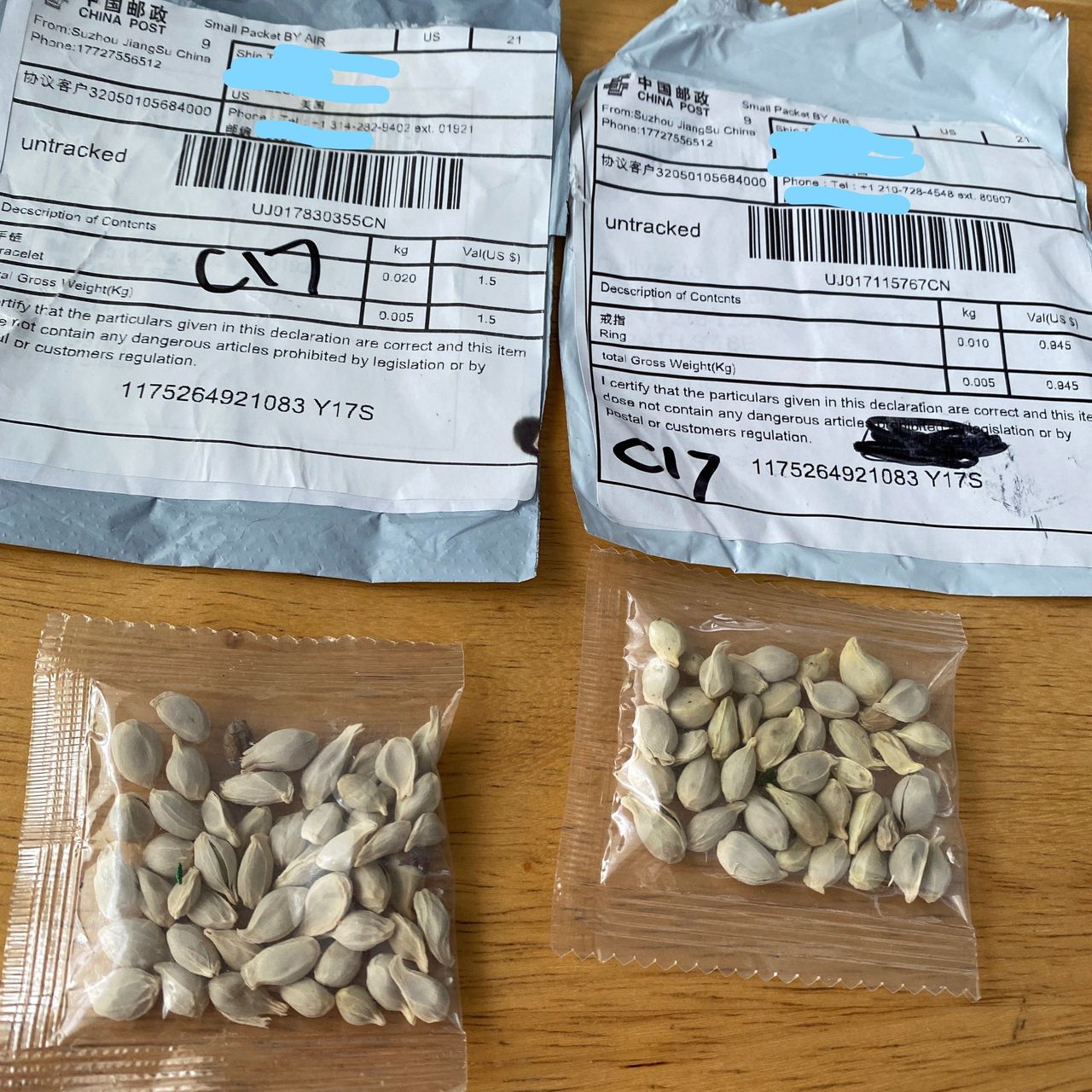DO NOT OPEN: Commissioners warn about mystery seeds
Published 1:49 pm Thursday, July 30, 2020
|
Getting your Trinity Audio player ready...
|
Scientists with the Alabama Cooperative Extension System agree that unsolicited seed packets being delivered in Alabama and across the country could pose a real threat to native ecosystems and possibly to people.
Covington County Commissioners Kenneth Northey and Tommy McGaha both stressed the issues of these seeds.
“The State Agriculture Department doesn’t know what it is yet,” Northey said. “They don’t know if it is going to be an invasive weed, if it could kill livestock or what exactly it could do. So, I ask the people to be very cautious with it. If you do get it, report it to the sheriff’s department or the state department. Just leave it alone, because it has been reported all throughout Alabama.”
“We also need to encourage people to not just throw it in the garbage,” McGaha said. “Because they will just take it to a landfill and it will grow there. I don’t know what the exact answer is, but just contact authorities, don’t throw it out.”
Threat of invasive species
Nancy Loewenstein, an invasive plant expert with Alabama Extension, said the seeds could be potentially invasive.
“These seeds could be from a known invasive species, like kudzu or cogongrass or they could be a weedy species with invasive potential,” Loewenstein said. “While it’s possible these seeds do not pose a threat, people should never plant seeds received in this fashion.”
Invasive species (flora and fauna) threaten the environment in the following ways:
reduce productivity of forests, rangeland and crop land
become weeds in gardens and lawns
reduce native biodiversity and wildlife habitat
limit land access for recreation (hiking, birding, fishing, hunting)
can be poisonous and/or injurious to humans and livestock
can potentially hybridize with native species
alter ecological processes (e.g., water cycling, nutrient cycling, fire cycles)
cost time and money to manage and control
“Invasive species can cause a great deal of damage to native ecosystems and agriculture, including significant economic damage,” she said. “A 2005 study estimated costs associated with invasive species totaled $120 billion a year, and those costs have likely risen since that time.”
Threat of pathogens and insects.
Kassie Conner, an Alabama Extension plant pathologist, said these mystery seeds could be harboring diseases, among other things.
“Plant pathogens can be transmitted through seed,” Conner said. “They can be inside the seed, on the outside of the seed or be present in the seed lot without obvious damage. These pathogens can include fungi, bacteria, viruses and nematodes.”
Conner said people could introduce a plant disease into their garden if they planted these seeds.
“Depending on the pathogen and the plant species, one infected seed planted in an otherwise healthy garden can cause complete yield loss,” she said. “Once a pathogen is introduced, many can survive for one to more than 10 years in the environment. Some can survive for longer than that.”
If disease and invasive potential are not bad enough, Extension entomologist Charles Ray said these seeds could contain damaging insects.
“There are a number of insects that feed in seeds as larvae,” Ray said. “In these seeds, you might find any one of a large number of pests that entered during seed storage.
What to do with seeds
According to Ray, seed shipments normally would be subject to inspection and quarantine procedures. For example, in 2017 USDA-APHIS cleared more than 17,000 shipments containing over 1.6 billion plant units and approximately 1,874 tons of seeds, intercepting 817 quarantine pests. Packaging on these mystery seeds has indicated that it contained jewelry rather than seeds. Officials believe this is an effort to avoid inspection, which is a form of agricultural smuggling.
Loewenstein, Conner and Ray all agree that it is extremely important that people DO NOT OPEN the package, DO NOT PLANT the seeds and DO NOT DISCARD them. They also say it is important people report receiving these packages.
The Alabama Department of Agriculture and Industries (ADAI) continues to receive reports from citizens who received unsolicited packages from China containing seeds. ADIA is currently collecting seed packages from recipients and is testing their contents for unknown compounds, noxious weed seed and also invasive species. This testing will determine if they contain anything that could be of concern to U.S. agriculture or the environment.
Reporting seeds
ADAI has established an on-line reporting system for Alabama residents who received suspicious seeds they did not order. Visit www.agi.alabama.gov/reportseeds and provide the requested information. At the end of the on-line form, there are directions for consumers on how to store the seeds properly until an ADAI representative contacts them. People should hold onto the seeds and the packaging, including the mailing label, until someone from ADAI contacts them with further instructions.
More information
Currently, there is not any evidence indicating this is something other than a brushing scam where people receive unsolicited items from a seller who then posts false customer reviews to boost sales. For further information, contact the ADAI’s Ag Compliance section at 334-240-7304.






